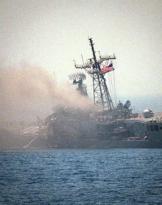A few days ago, Defense Minister Guerini presented in Parliament a series of dossiers containing the strategies that Italy should adopt in strategic contexts such as Libya, the Balkans and relations with Russia and China.
A definitely positive aspect is the recognition, by the new minister, of the specificity of the military world. Definitely a step forward compared to the previous tenant of Palazzo Baracchini, who believed that the military instrument should be of support to civil administrations (there was also the possibility of using the military to repair the mantle of the streets of the capital).
Therefore, the guidelines provide for a reassessment of the safe roads operation, active for over 10 years and which sees the use, on the national territory, of military 7.000 (more than those employed abroad).
Obviously this is a very burdensome task for the departments, also because there is no time constraint. Moreover, with a better management of personnel, it could be more effectively performed by the Carabinieri and the State Police, who have more specific training for the management of public order.
Finally, it is highlighted that Chinese military growth is also a threat to Italy's security. Not surprisingly, over the course of the year, concerns about China were also discussed in NATO.

Just the Chinese expansionism should push Italy, together with the other European partners, to a rapprochement with Russia, in order to remove it from dangerous alliances with Beijing.
A crucial node for Italy remains the Mediterranean basin which, in the broader concept of Enlarged Mediterranean, involves several highly unstable areas.
From Libya to Syria, passing through the Sahel and the Horn of Africa, they are all theaters that fall within the strategic interests of Italy. Especially in Libya, where the deadlock in front of Tripoli could be resolved by the greater involvement of the contractors Russians in support of the Haftar forces.
It is precisely the Libyan question that should be the object of greater attention on the part of the Italian Executive, not limiting itself to nebulous memoranda for controlling the flow of immigrants but undertaking an effective policy to stabilize the situation, even resorting to the use of the military instrument.
The minister's announcement of a greater naval military presence in the eastern Mediterranean, which is indispensable given the Turkish aggression and Italian energy interests in the area, can be shared.
All this requires a military instrument appropriate to national interests. The lines of the Ministry of Defense emphasize the stability of funding, with the intention of establishing a three-year investment instrument.
This would allow the Defense to plan more effectively the acquisition of equipment and the industry to better manage the investments, obtaining, with the same funds, better results. Fundamental is the financial certainty to be credible in international programs, with the consequence of obtaining technological and industrial returns that can also be exploited in the civil field.
An industrial policy that, according to the guidelines, recognizes in the aerospace, security and defense sector a strategic component of national sovereignty, as it allows the country not to depend on foreign technologies and products.
Photo: Ministry of Defense / Ministry of Foreign Affairs and International Cooperation












